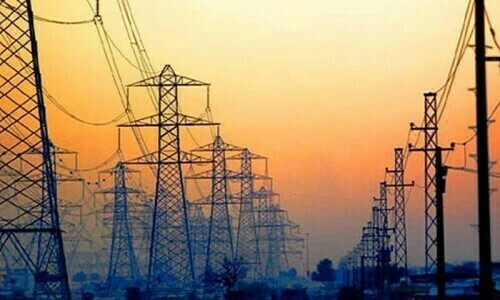Dr Hafiz A. Pasha
Economist
The budgetary process has tended to go out of control in recent months. By the end of the current fiscal year the consolidated fiscal deficit is likely to approach 6.5pc of GDP, compared to the deficit target of 4.1pc of the GDP. The expansionary nature of the on-going fiscal policy is inevitably adding to aggregate demand and putting pressure on the import bill, thereby exacerbating the problem of a large and growing current account deficit.
Given these conditions, it is indeed surprising that the lame duck government still wants to present a sixth budget at the fag end of its tenure. The reasonable expectation is that the budget strategy in 2018-19 must be to bring down sharply the deficit back to about 4.5pc of the GDP. This would necessitate unpopular taxation measures and expenditure cuts on the eve of the elections. This task could better have been left to the successor Government.

Dr Mushtaq Khan
Founder & Author,
doctored papers
Planning and formalising a full year budget, when the market is still unconvinced about how this government intends to manage the external deficit, and the vicious borrowing cycle that the country has entered, defies logic. With the IMF hinting that Pakistan needs to refocus on stabilising the macro economy and follow through on incomplete reforms (a not so subtle hint that we need another stabilisation programme), what credibility will this budget have? We do not know how the country will finance its external payments in FY19, what the IMF will provide to tide us over, and also how narrow the current account deficit would have to be — so how can our planners put forward an economic plan that is internally consistent with credible financing sources?
In our view, the Budget for FY19 is a political stunt to get mileage for the next election.

Dr Faisal Bari
CEO, Ideas
The budget can be expected to be expansionary. Since elections are round the corner, this
government has an incentive to increase expenditures so as to woo voters.
The increases in expenditure will come in the form of sizable increases in salaries of government employees, increase in pensions and announcements of various sorts of ‘relief’ measures. The government has already announced substantial cuts in individual income tax rates. These will also be reflected while it is unlikely to impose any new taxes in this budget.
The result of the above will be increased budgeted fiscal deficit for next year. The government will justify it by saying that it is using expansionary policy to ensure that GDP growth targets are met and the rising growth rate does not falter and fall again.
The next government that comes in, post-election, might have to bring adjustments to the budget that this government presents. Increasingly binding fiscal constraints might force the next government to reverse some of the expansionary policies this government is likely to announce. But it will not be easy to reverse all changes as doing so will make the incoming government lose popularity.

Dr Nadeem ul Haque
Former Deputy
Chairman, P&D
The government has no commitment towards the budget. It cannot have any commitment towards it because it won’t be implementing it. A new government will. Besides whatever changes had to be made were made with the amnesty announcement which was a mini-budget of its own. It’s very convenient to issue a budget but the new government that comes will change it. In any case the country will enter the IMF programme sooner or later and then a new budget will be announced to support it. This budget is no big deal. It has no meaning at all.
Published in Dawn, The Business and Finance Weekly, April 23rd, 2018












































